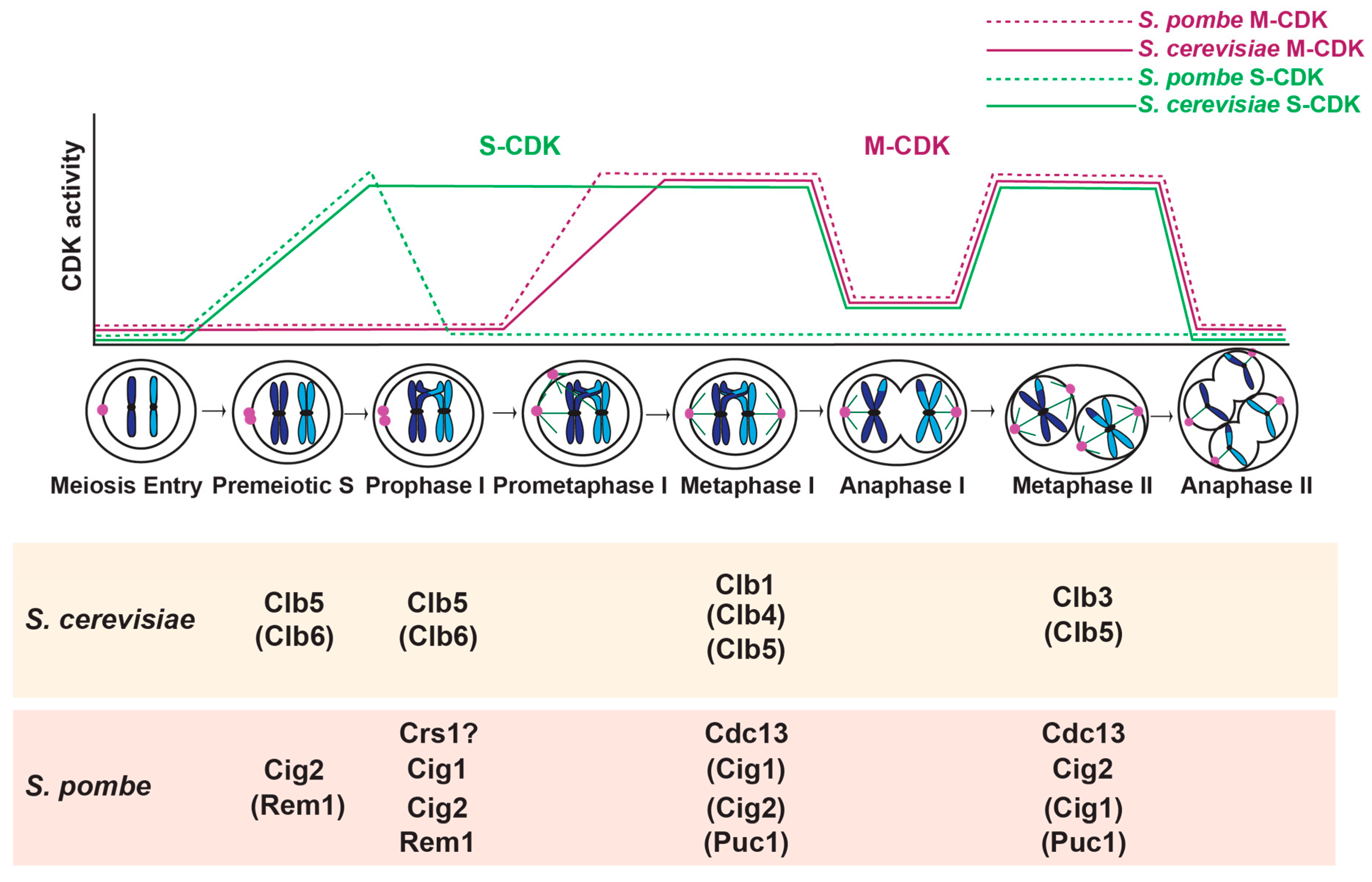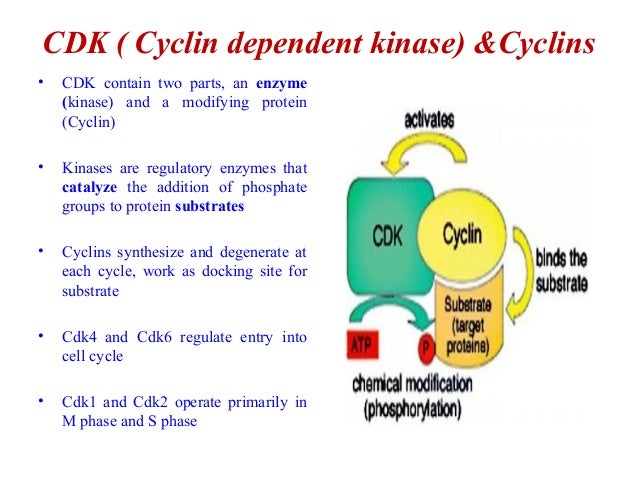CDK Regulation of Meiosis Lessons from S Biology Diagrams Each of the different cyclin - Cdk complexes serves as a molecular switch that triggers a specific cell-cycle event. We now consider how these switches initiate such events and how the cell-cycle control system ensures that the switches fire in the correct order and only once per cell cycle. We begin with the two central events of the cell cycle: the replication of DNA during S phase and the The core cell cycle is largely driven by increasing total CDK activity together with minor differences in the substrate specificity of the CDKs initiating DNA replication and mitosis.

Serine/threonine kinases called cyclin-dependent kinases (CDKs) interact with cyclins and CDK inhibitors (CKIs) to control the catalytic activity. CDKs are essential controllers of RNA transcription and cell cycle advancement. The ubiquitous overactivity of the cell cycle CDKs is caused by a number of genetic and epigenetic processes in human cancer, and their suppression can result in both

Learn Science at Scitable - Nature Biology Diagrams
Cyclin-dependent kinases (CDKs) are involved in many crucial processes, such as cell cycle and transcription, as well as communication, metabolism, and apoptosis. The kinases are organized in a pathway to ensure that, during cell division, each cell

Cyclin Dependent Kinases (CDKs) are closely connected to the regulation of cell cycle progression, having been first identified as the kinases able to drive cell division. In reality, the human genome contains 20 different CDKs, which can be divided in at least three different sub-family with different functions, mechanisms of regulation, expression patterns and subcellular localization. Most

Dependent Kinases: Types and Their Mechanism of ... Biology Diagrams
This process is regulated by many enzymes, including cyclin-dependent kinases (CDKs) which phosphorylate proteins on their serine and threonine amino acid residues. The 20 members of CDK family known to this day regulate the cell cycle, transcription and splicing [1]. Cyclin Dependent Kinases (CDKs) are closely connected to the regulation of cell cycle progression, having been first identified as the kinases able to drive cell division. Coordinated protein phosphorylation reactions control progression through the cell cycle. Learn how specific complexes of cyclins and cyclin-dependent kinases (CDKs) catalyze these reactions.
